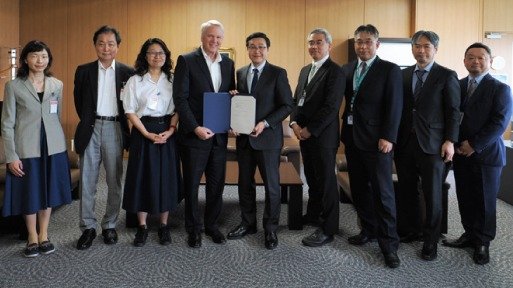American technology giant IBM has partnered with the National Institute of Advanced Industrial Science and Technology (AIST) in Japan to develop the world’s most advanced quantum computers, which are expected to be operational by 2029. This marks IBM’s first large-scale collaboration with a foreign institution in quantum computing.

Both parties formalized their partnership last month by signing a memorandum of understanding (MoU), which states their commitment to accelerate the growth of the quantum industry in Japan and foster an ecosystem to maximize business impact.
This next-generation quantum computer will have 10,000 quantum bits or ‘qubits,’ or 75 times more than the current generation of quantum computers, which have 133. Existing quantum computers often make errors and are used alongside supercomputers to achieve accurate results. A qubit, the basic unit of quantum information, gauges the performance of a quantum computer.
IBM and AIST will address the issue of accuracy by developing a computer that can calculate high-level combinations independently. They will also focus on developing semiconductors and superconducting integrated circuits capable of withstanding extreme temperatures, crucial for quantum computers that operate in near absolute zero environments.
This partnership is a significant step towards diversifying the commercial capabilities of quantum computers. Scientists suggest that hardware supporting 20,000 to 30,000 qubits is necessary for transformative research advancements.
While IBM plans to start selling 1000-qubit computers by 2025, AIST will train Japanese companies to adopt these systems for research in industries, like pharmaceuticals. The collaboration may also involve Japanese manufacturers to leverage their mass production capabilities.

